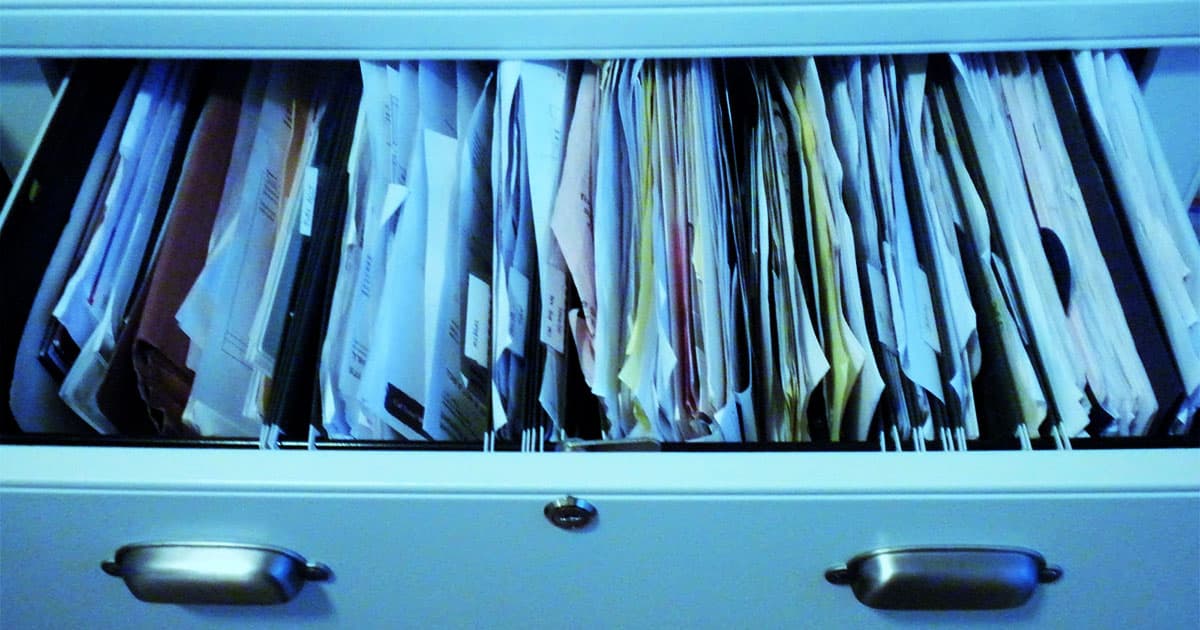Keeping good records is crucial if you’re chosen to be the executor of an estate. Not only do you need to keep track of all of the paperwork regarding the probate process, you also need to document any expenses that you incur while administering the estate. The court will ask for these records and the whole process will go much smoother if you’re able to quickly produce them. In this article we’ll discuss which documents are important to keep track of, and how you can effectively take note of all your expenses so that you can submit that information to the court later on.
Creating Separate Folders for Documents
When the probate process begins, it’s essential to immediately set up a separate filing system for all documents related to the estate. You don’t want to accidentally mix up your personal documents with those that will be submitted to court. To help you stay organized you may want to buy a portable filing system and divide it up into the following categories.
Employment Documents – In this folder you can put any documents that are related to the deceased’s job or any benefits that they received from their work. Also, if they were retired, you can place any documents relating to their retirement here.
Government – All documents like income taxes, government pensions, or anything else related to a government service can go here.
Automobile – After the death, the car insurance company must be notified as quickly as possible. The car should be securely stored and nobody should use it until the title has been changed and it’s properly insured in the new owner’s name.
House – If the estate includes a home, it should be secured and the home insurance company should be notified as soon as possible. Any other documents related to the house, like utility bills, should be kept in this folder as well.
Vital Records – Documents falling under this category include divorce decrees, social security cards, passports, anything related to citizenship status, birth certificates, and marriage certificates.
Legal Papers – Here you should have the original copy of the death certificate, along with multiple copies of it. You should also keep the will, codicils, and the living will here.
In addition, you’ll also want to create a separate folder for any expenses that you incur as the executor of the estate. These will be reimbursed at the end of the probate process but only if you have the proper receipts and are able to justify all of your expenses to the court. Some of the expenses that an executor can be reimbursed for later on include copy fees or any postage fees that have been paid out of pocket. In most situations, larger expenditures will be paid directly out of the estate’s assets. The executor of the will is not responsible for them.
Get A Free Guide to Probate
Keeping Copies of all Records
As the executor, it’s your job to ensure that there are records kept of everything involving the estate. Outside of government and financial records, that may also entail keeping track of email correspondences and any letters that you receive. For emails, you may wish to print out the most important ones, and save any attachments to a secure hard drive.
To make your life simpler you may also want to create an email account that you use exclusively for all matters regarding the estate. With the plethora of free email services available, this is a step that can make the probate process easier to keep track of. It’s impossible to know what documents will be necessary during the probate process, especially if any of the beneficiaries decide to contest their inheritance.
What Happens if Good Records Are Not Kept
Probate tends to be straightforward and painless, as long as good records are kept. However, if that doesn’t happen, the entire process can get significantly more complex. The executor may be left to run around and spend hours gathering up essential court documents. In some cases, a lawyer may even need to be retained to help produce these documents. In fact, it’s an unfortunate truth that many times a lawyer is only brought on board once the executor of the estate is already hopelessly behind with the paperwork. That’s why if you think that keeping track of all documents and submitting them on time is going to be a problem, it’s better to retain a lawyer immediately so that they can help you to get through the process effortlessly.
Also, the requirements placed on the executor of the will dictate that the right person is chosen for the job. The executor needs to be an organized person, and someone who will be able to take time out of their schedule in order to properly take care of all of the deceased’s assets. If you’ve been chosen as the executor of the estate and you don’t feel that you’re able to meet these obligations, the best thing that you can do is to not start the process. A different executor can be appointed who will be more capable of performing the work.
Keeping Detailed Notes
Along with storing all documents in an organized manner, you may also wish to keep a journal which details all of the work that you’ve done as the executor of the estate. In this journal you can include any notes about meetings with lawyers, bankers, or anyone else involved in the probate of the estate. These notes can provide you with a reminder of what was discussed, and may be useful as the case progresses through the court system.
Selecting the Best Probate Attorney
Even if you feel like you’re up to the challenge of being the executor of the estate, in many cases it’s still beneficial to retain a lawyer. They can help to ensure that all court documents are filled out correctly and submitted on time. Also, if the will is contested or any of the beneficiaries have a problem with the assets that they’re receiving, a lawyer can help to sort out these problems. If you live in North Carolina and you want to hire the best possible probate lawyer, contact Hopler, Wilms, & Hanna. With decades of combined experience, we can help to make the probate process simple and easy, giving you more time to focus on what matters.
Get A Free Guide to Probate


